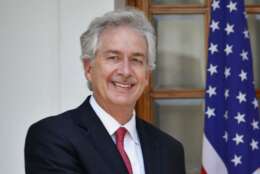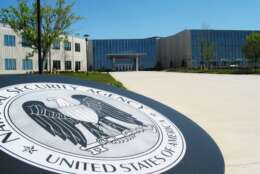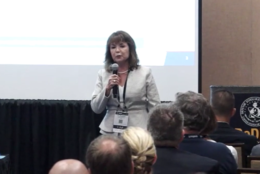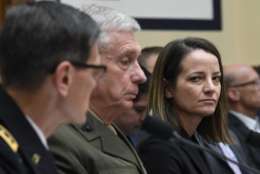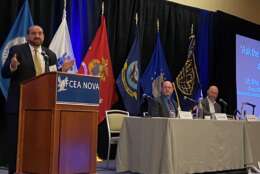Intelligence Community
-
For John Beieler, the director of Science and Technology for the Office of the Director of National Intelligence, that means making sure agencies invest in S&T capabilities.
January 12, 2021 -
President-elect Joe Biden has chosen veteran diplomat William Burns to be his CIA director
January 11, 2021 -
The new service will set up an intelligence center within a year, that will develop from the two core space squadrons.
January 07, 2021 -
Efforts to increase the number of female, minority and disabled employees have taken place across the intelligence community. But in eight years, GAO says results have been lower than federal standards call for.
December 30, 2020 -
President Donald Trump signed an executive order Thursday giving federal agencies a shared ethics framework for developing and using artificial intelligence.
December 03, 2020 -
Contractors doing business with the intelligence agencies must deal with a 2021 budget request that's hundreds of millions of dollars lower than the fiscal year that just ended.
November 05, 2020 -
The National Security Commission on Artificial Intelligence recommends elevating the role of the Defense Department’s chief technology officer and designating a CTO office within the intelligence community.
October 14, 2020 -
Cynthia Mendoza, the intelligence community’s chief architect, said the reference architecture framework is defining consistent, repeatable approaches to ensure security and interoperability among enterprise IT capabilities.
October 01, 2020 -
Federal contractors have sensed a certain sluggishness in the government's pace of awarding contracts during the pandemic. Now, a review of this phenomenon finds it's more pronounced in the intelligence community.
September 11, 2020 -
While 5G could have major implications for the economy, intelligence and cybersecurity agency officials warn that moving more core functions to the edge of networks could create a larger attack surface for adversaries.
August 20, 2020 -
Agencies that handle classified information have had to perform a kind of juggling act to ensure their employees’ safety from the coronavirus while also guaranteeing that the work that needs to gets done.
July 23, 2020 -
Another senior Pentagon official is resigning. Katie Wheelbarger, the acting assistant secretary of Defense for International Security Affairs submitted her letter of resignation on Wednesday.
June 19, 2020 -
Agencies and contractors in the intelligence community are rearranging work schedules and office spaces to prepare for the phased reentry of their employees, but they're also taking steps to address the discomfort and anxiety many are feeling as they return to the physical workplace.
June 17, 2020 -
The pandemic has shown federal and industry leaders in the intelligence community: the nature of classified work may be ripe for change.
May 21, 2020 -
Deputy chief information security officers at the National Geospatial Intelligence Agency and the National Reconnaissance Office say they are in the middle of expanding and maturing their approaches to cybersecurity.
April 24, 2020


